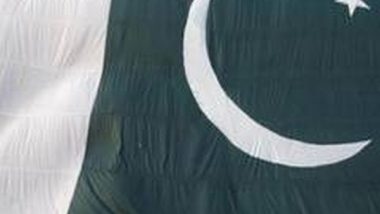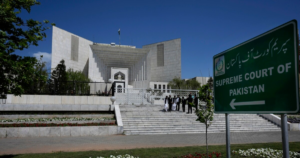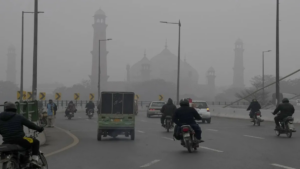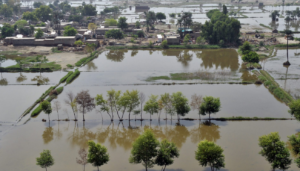
It is a bit tragic that when a third of Pakistan is underwater, the only news making the headlines is the selection of a new Army Chief. Realistically speaking, the people of Pakistan do not matter, the person who heads the Army matters the most. As is well known, Pakistan is ruled by the triumvirate of “Allah, America and Army” and therefore, it is not surprising that when CoAS General Qamar Bajwa states that the Army will continue to stay out of politics it is treated as gospel in Pakistan. Of course, the world knows that all such statements are to be taken with a pinch of salt and his remarks that he will retire in November has a reason behind it. The primary one being to offset the tone and tenor of remarks on the Army by former Prime Minister Imran Khan. A second more serious problem is to quell increasing discontent within the Pakistan Army over Bajwa’s continuance in uniform and some elements who support the actions of Imran Khan.
Ousted in April, former Prime Minister Imran Khan recently said that Pakistan should go in for a snap poll in October, so that his political opponents, whom he calls ‘thieves’, do not select the successor to the incumbent Army Chief, General Bajwa, who is due to retire in November 2022. Imran Khan assumes that he will win the polls and that will prevent his detractors from appointing a ‘pliable’ Army Chief who may condone their corruption. What does Imran Khan really want? Ideally, he would like to choose Bajwa’s successor. Recall that he had wanted General Faiz Hameed to continue as ISI Chief some time ago, but this suggestion was turned down by the Army Chief. Faiz Hameed is one of the contenders to succeed Bajwa in November!
Naturally, the Pakistan Army is ‘aghast’ at the former PM’s remarks. President Arif Alvi, is said to have ‘distanced himself”, from the statement. Justice Athar Minallah, Chief Justice of the Lahore High Court, has expressed dismay at Imran crossing all limits “for the Game of Thrones”. The Shahbaz Sharif government claims that this is a direct assault on the Army. Most politicians in Pakistan agree that the Army has made ‘sacrifices’ and its members “staking their lives for the nation” ought not to be subjected to the ‘insult’ that they say Imran Khan is inflicting. Imran may well be ploughing his lonely furrow, but remains unfazed and insists that his targets are his political opponents, not the Army. But a near-consensus is that Imran, acting out of desperation, has “crossed the red line”. His perceived snap polls timetable cuts too fine.
Imran Khan’s recent remarks are part of his rhetoric against the Army and for most part are impractical. Even if elections are announced today, the electoral process, once begun, will take at least six weeks and results, assuming that they would yield a clear-cut popular verdict, would need time for a new government to take office. Imran’s anger is against the Army for having let him down last year after propping him to power in 2018. But the former PM continues to maintain his links with the establishment. Reports indicate that he is “in direct touch” with the Army, both within the ISI and the senior leadership of the Army. The deep state has reportedly told him that elections would be held in March 2023, four months before schedule. It is speculated that a formal announcement of the polls will be made in January 2023.
Two things are to be noted here. First, Imran Khan’s immediate worry is that of his getting arrested on one charge or the other. The other is his angst with the Army which had brought him to power in 2018. Once in office, Imran Khan tirelessly repeated the mantra, “we are on the same page.” Today, he uses the pejorative ‘neutrals’, a claim the Army has often made to distance itself from political ongoings, to pressure the top brass to stay genuinely neutral. Imran claims that the Army, tired of his handling of the economy and foreign policy, tilted against him by causing defections and ultimately voted him out via the National Assembly route.
Is there a genuine possibility that Imran Khan’s strategy is create a perception of divide in the Pakistan Army? Difficult to assess; but given his close contacts within the establishment, it is likely that there are sections within the top brass who want to see him succeed against the two political dynasties they dislike, the Sharifs and the Bhutto-Zardaris. Both these family groups are politically better entrenched in Pakistan and have a record of defying the Army. It is this perceived division within the military brass, or the public notion of it, which has helped Imran consolidate his popularity even when out of power. He hopes to use it to his advantage and expects that an early election could benefit him.
It can be safely assumed that Lt. Gen. Faiz Hameed, currently Corps Commander of 31 Corps and former ISI Chief is supported by Imran Khan. In fact, it was Imran Khan who created the rift between Gen. Hameed and Gen. Bajwa last year. Officially, the former fell out with the CoAS Bajwa due to his trying to seek glory for return of the Taliban and his inability to bring the TTP to the negotiating table. Gen. Hameed was replaced in early October 2021 by Lt. Gen. Nadeem Ahmad Anjum as DG, ISI. At that time, Imran Khan confronted the Army chief saying he wanted Hameed to continue in office for a little longer. In fact, the PMO did not issue the orders for Anjum’s appointment for a good three weeks after the Army announced its decision. Soon after taking over, Lt. Gen. Anjum ordered an investigation into the activities of the Kashmir Desk and its officers, when Hameed was in charge.
The incumbent Pakistan Army Chief’s statement on not seeking or accepting any extension (that too made while on a visit to the US) has put to rest the ongoing criticism and talks about Imran Khan’s wish to defer the appointment of the new COAS until early elections are held and new government takes over. However, this could well be a tactical operation meant to stymie Imran Khan from further attacks on the Army. Wait and watch is the best thing to do in the case of the Pakistan Army.






